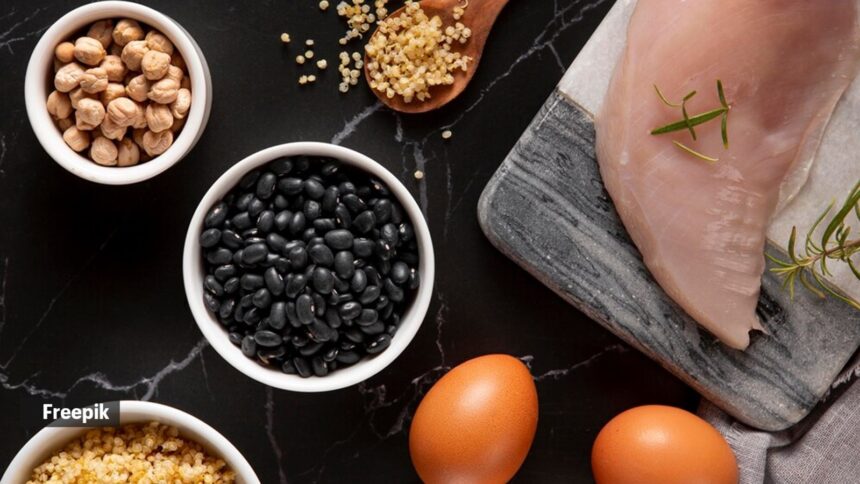Protein intake dominates most conversations surrounding nutrition, fitness, and wellness. Whatever your health goals are – building muscle or watching your weight – the underlying statement hints at increasing the amount of protein in your diet.
Pratiksha Kadam, Chief Dietitian, Kokilaben Dhirubhai Ambani Hospital, Navi , shared that protein provides the body with amino acids, the building blocks needed for the production of growth hormone and other crucial biological processes. Animal proteins such as milk, eggs, chicken, and fish are high in quality and easily absorbed. Plant-based proteins—found in lentils, beans, soy products, and nuts—also contribute significantly, especially when consumed in a balanced vegetarian or vegan diet.
However, money is an essential factor for the common man — and does not come cheap! Trying to keep up with your protein intake while sticking to the grocery can seem like a never-ending struggle, but proper guidance can make the process easier.
According to Meenu Balaji, chief nutritionist at Pragmatic Nutrition, , people think supplements are the only way to get and do not realise that they are expensive and not everyone needs them. Here is a table to show the different food sources that give you protein for Rs 100
According to this chart, 55g of protein costs Rs 99, which meets the requirement for an adult weighing 68 kg with a sedentary lifestyle (0.8 g protein per body weight).
“However, if you are training for bodybuilding, your requirement would be higher. You could also choose from high biological value lean sources like chicken, fish, and egg whites. The portion sizes listed for these foods are realistic, and something you can eat in your day-to-day life,” Balaji said.
She added that it is equally important to ensure that vitamin D levels are optimized, as it helps in the absorption of calcium, which plays a critical role in bone health and development. Whole grains, fats and oils, fruits, and vegetables should also not be overlooked, as they provide fuel and energy, as well as vitamins and minerals that support overall health and growth.
She shared a few more cost-effective protein sources:
1. Curd
2. Soya chunks
3. Roasted channa
4. Moong dal
5. Besan
6. Millets
7. Sattu
While protein is a key factor in our regular diet, Balaji highlighted the importance of adopting a holistic approach to nutrition. A diet that is diverse and balanced, incorporating a variety of food groups, will not only support your specific health goals but also promote overall well-being.
DISCLAIMER:








